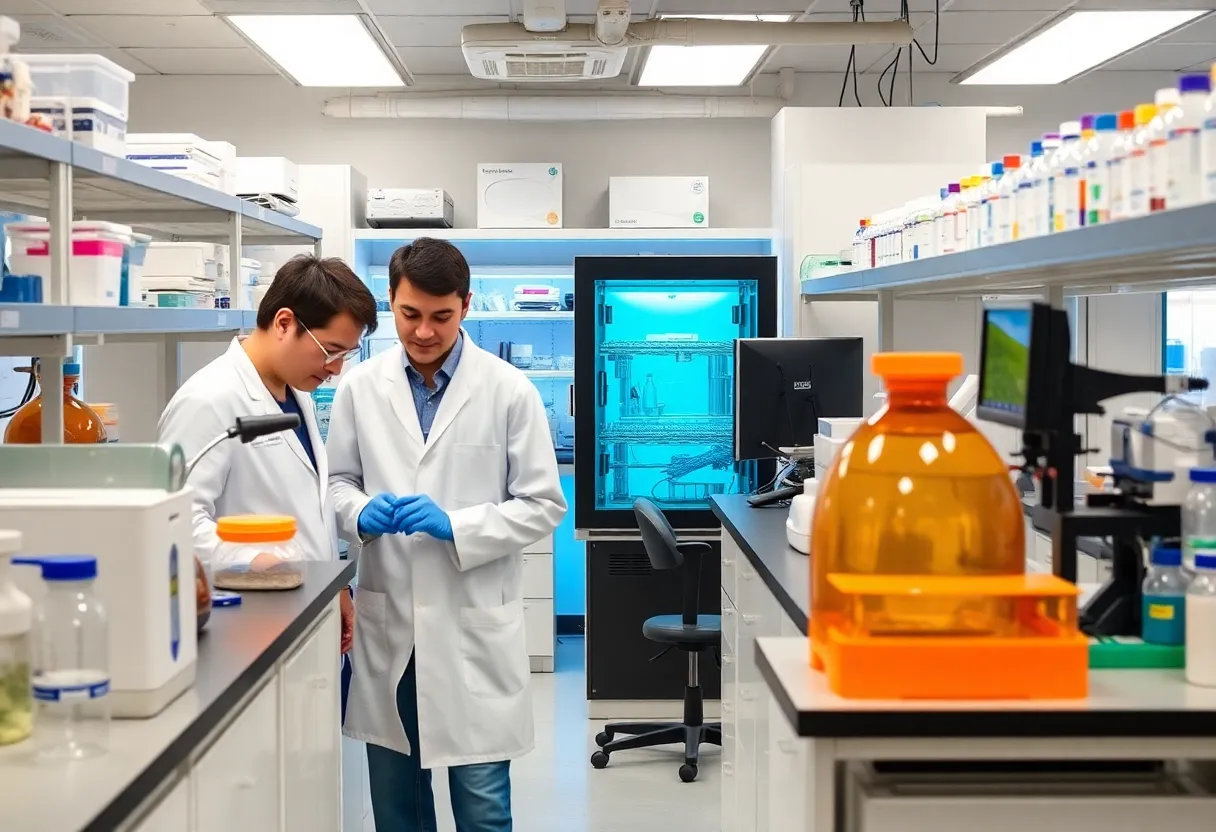News Summary
Boston, once a leader in the biotechnology sector, faces unprecedented challenges as funding cuts and international competition threaten its innovative ecosystem. Despite substantial venture capital and job growth, the region’s biotech industry is under pressure from federal budget cuts, regulatory uncertainties, and increasing competition from cities like Toronto and Shenzhen. With rising vacancy rates and cautious optimism among industry executives, Boston’s ability to maintain its status as a biotech hub depends on strategic collaborations and a diversified talent pool.
Boston is currently facing unprecedented challenges in its biotechnology sector, long regarded as the global leader in life sciences. The combination of funding cuts at the federal level and intensifying international competition has put significant pressure on the region’s once-thriving biotech industry.
The Boston-Cambridge area is home to more lab space than any other city worldwide, bolstered by billions of dollars in venture capital that fuel startups in the region. This ecosystem has allowed biopharma employment in the area to nearly double over the past decade. However, recent political and economic changes threaten to undermine this growth. The Trump administration’s policies have posed risks related to federal grants and the availability of visas for international talent—all critical components to Boston’s biotech success.
Other cities, particularly Toronto, are striving to position themselves as viable biotech hubs by leveraging their own research institutions. While Boston-Cambridge has remained the top life sciences cluster in the U.S., with San Francisco and San Diego trailing behind, San Francisco boasts a more dynamic startup environment, and North Carolina’s Research Triangle excels in biomanufacturing. In addition, regions like Shenzhen, China, and Cambridge, UK, have emerged as formidable competitors. Shenzhen produces about 30% of all global life science licensing transactions, while Cambridge, UK, is being hailed as Europe’s biotech capital, backed by a robust innovation ecosystem and a reputable university.
While investment in Greater Cambridge has increased tenfold in the last decade, reaching $2.3 billion, it still pales in comparison to Boston’s nearly $8 billion raised last year. This has prompted reports of researchers from Boston receiving lucrative offers to relocate their companies or research efforts overseas, intensifying an already competitive landscape.
Funding Tightens and Challenges Emerge
Federal financial support, traditionally a significant boost for the Boston biotech scene, has become a concern. Historically, the National Institutes of Health (NIH) has provided over $45 billion in funding to local institutions, essential for ongoing research and development. However, recent shifts in U.S. government policies threaten to impact the level of support that biotechnology companies have relied upon. Experts caution that proposed federal budget cuts aimed at reducing NIH funding could lead to a downfall in scientific innovations originating from Boston.
Additionally, Massachusetts has committed $2.6 billion to enhancing its life sciences ecosystem over recent years, but this investment competes against an increasingly challenging environment. Around 25% of Boston’s lab spaces are currently unleased, reflecting economic difficulties that have driven higher vacancy rates. Companies are navigating through limited investment funding and layoffs, hinting at a downturn following the initial peak seen during the COVID-19 pandemic.
Regulatory Uncertainties and the Future
The turnover in U.S. political leadership has raised uncertainties concerning regulatory environments that affect drug approvals, leaving executives wary about future business conditions. Increased tariffs also pose potential disruption risks to supply chains, which may ultimately impact drug prices. Nevertheless, there is rising interest in developing therapies for prevalent diseases like obesity and immunology. Collaborations with international biotech firms, especially those in China, are being explored as strategic opportunities even as competition heats up.
While concerns have arisen regarding the FDA’s capacity to sufficiently staff critical processes for drug approvals amidst administrative changes, biotech industry executives express cautious optimism about emerging trends in the sector. Stability and predictability in business environments are key to maintaining momentum.
Despite ongoing volatility, Massachusetts biotechs raised $1.2 billion in venture capital in the first two months of 2025, indicating potential signs of recovery. As the sector navigates these turbulent waters, maintaining a diversified global talent pool is crucial for sustaining Boston’s innovation edge in the biotech landscape.
Deeper Dive: News & Info About This Topic
- Stat News: Boston-Cambridge Biotech Capital
- Wikipedia: Biotechnology
- Gene Online: Boston’s Biotech Leadership
- Google Search: Boston biotech industry
- MassLive: Is Boston Losing Its Biotech Crown?
- Encyclopedia Britannica: Biotechnology
- Boston.com: Unleased Lab Space and Valuation Plunges
- Google News: Biotechnology trends

Author: STAFF HERE BOSTON WRITER
The BOSTON STAFF WRITER represents the experienced team at HEREBoston.com, your go-to source for actionable local news and information in Boston, Suffolk County, and beyond. Specializing in "news you can use," we cover essential topics like product reviews for personal and business needs, local business directories, politics, real estate trends, neighborhood insights, and state news affecting the area—with deep expertise drawn from years of dedicated reporting and strong community input, including local press releases and business updates. We deliver top reporting on high-value events such as Boston Marathon, Head of the Charles Regatta, and Boston Harborfest. Our coverage extends to key organizations like the Greater Boston Chamber of Commerce and Associated Industries of Massachusetts, plus leading businesses in finance, biotech, and insurance that power the local economy such as Fidelity Investments, Biogen, and Liberty Mutual Insurance. As part of the broader HERE network, we provide comprehensive, credible insights into Massachusetts's dynamic landscape.





